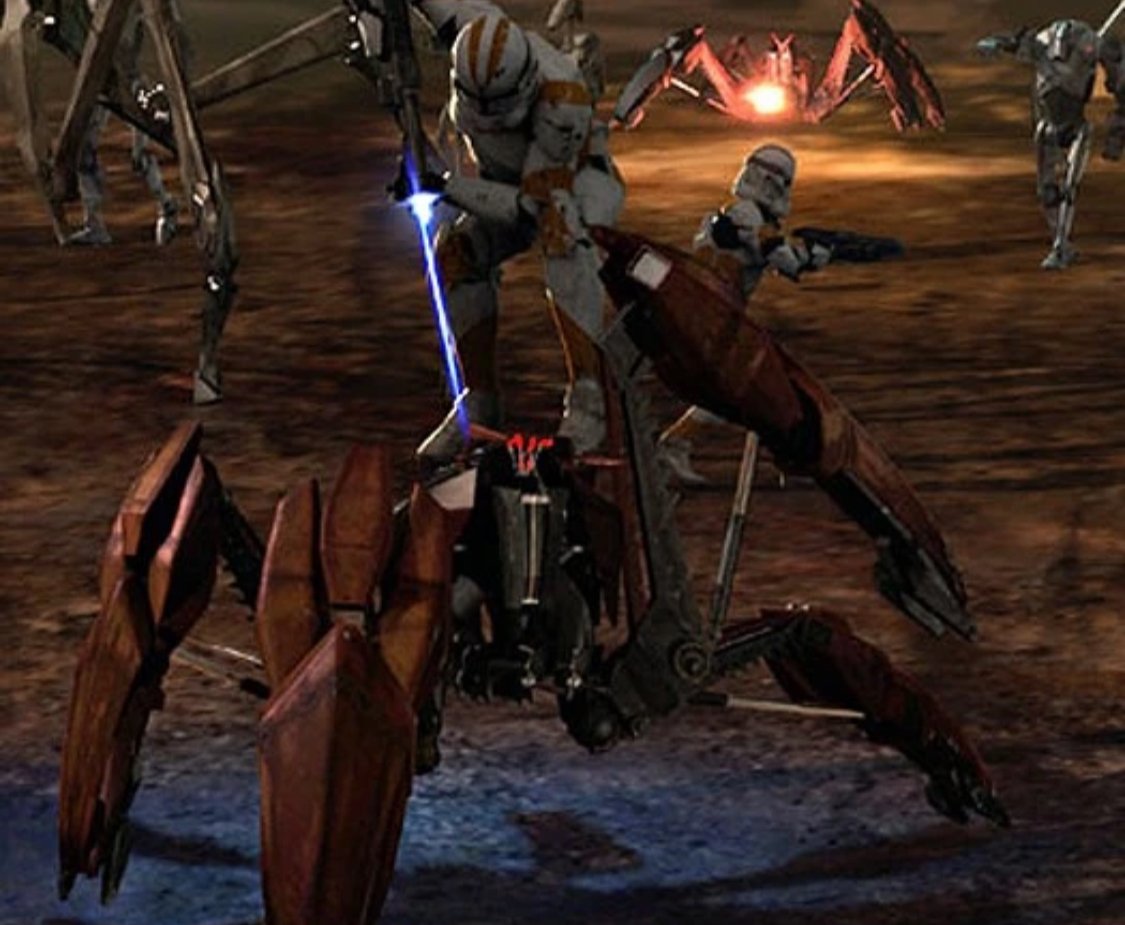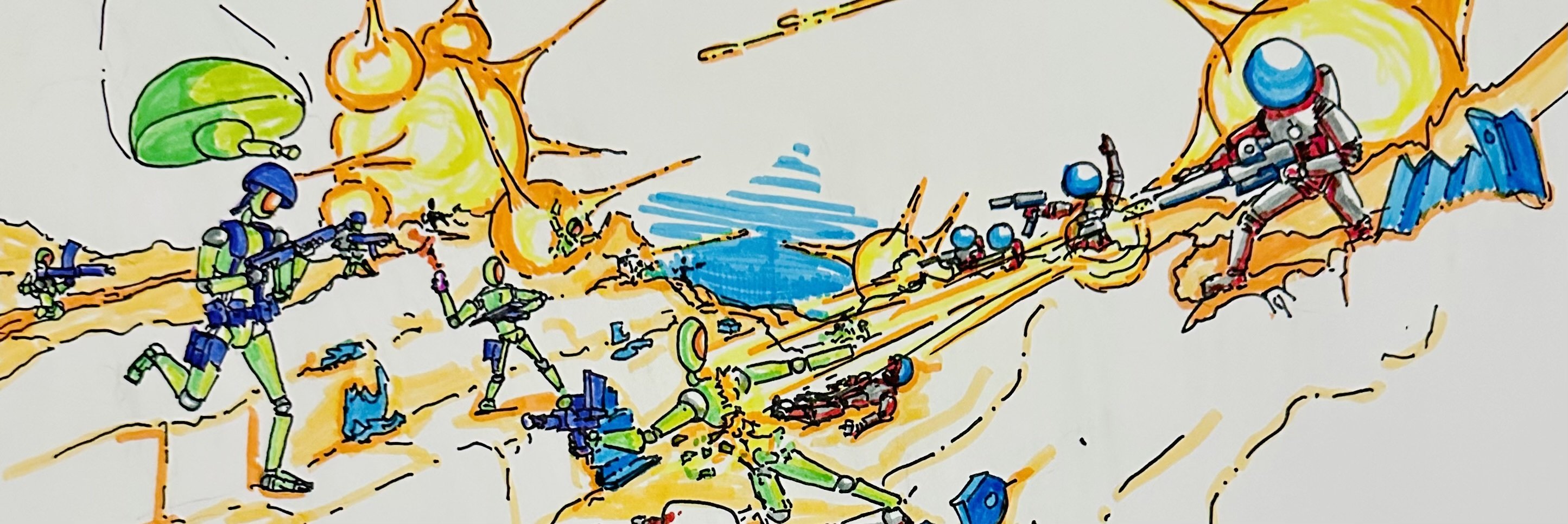That’s my point though. If it was some random person it’s whatever. A writer saying it gives a window into the headspace of the writing team.
I mod a worryingly growing list of communities. Ask away if you have any questions or issues with any of the communities.
I also run the hobby and nerd interest website scratch-that.org.
- 439 Posts
- 894 Comments
It’s an unknown “link” because there isn’t actually any connective tissue aside from FO4 protagonist being a former soldier. This is just a memberberry for the sake of a memberberry.

 1·8 days ago
1·8 days agoI don’t think so.

Consider that a fire in one building in 1973 destroyed millions of military records of which there were no copies, ruining bookkeeping for military personnel who had been discharged up to the 1960s.
The world was much less digitized even in the 1980s. A lot of records were still kept on paper or microfiche.
In the world of The Terminator Skynet’s first move was to nuke population centers. That means destroying untold numbers of records. Sure some military and high level government records would be on ARPANET but Skynet wouldn’t by default have been fed all of this mundane business and personal information because it simply hadn’t been digitized and had no application for a military network.
Thats a lot of blank spaces.
I don’t know how many people actually care enough to try and game the system for getting flagged. I’ve never really heard that concern, especially considering buying 1k of ammo at a time is not as uncommon as it seems at first glance. Some sealed packaged ammo cans hold more.
FWIW I bought 10k rounds at one time once and nobody from the government ever followed up.
The real real was that the 1986 act was a mixed bag. The closing of the machinegun registry was part of a compromise where on the other end some record keeping and shipping requirements for FFLs were relaxed, and ATF inspection limits of FFLs were put in place.
Part of the plot was that Skynet didn’t have great records. The terminator had to use a phone book and go down the line killing Sarah Conners because it didn’t know which one was the target
Modern day, sure no problem. Today’s micro red dots can be mounted to the moving slides themselves and survive.
In the 1980s? Maaaybe…
The laser in the movie is mounted to the frame by way of the grip, so it will shake around much less than if it were on the slide. Mounting optics to the frame is how competition guns were (and sometimes still are) set up.
The question comes down to the durability of a laser device made in the 80s. The movie’s laser was a specially made prop. On one hand it was made by the precursor to Surefire which is known for quality equipment, on the other hand I doubt the movie cared about it actually holding a zero.
I’m sure there are plenty.
The finer detail though is that any FFL with a table still has to run a NICS background check. While any non-FFL doesn’t (and to my knowledge can’t even if they wanted to), which is exactly the same as if they were selling privately in any other way.
So, it is true you can buy a gun without a background check at a gun show, but it’s not like it’s a special law free zone where FFLs suddenly are exempt from the rules. It’s a unique situation where businesses and private sellers are selling guns right next to each other, each following different legal requirements.
The process is quite simple. It’s just the prices…
The NFA existed.
Not entirely. Machineguns have, since 1934, been required to be registered with the federal government, and for a normal person individually require a federal approval to buy (a “stamp”).
What happened in 1986 was the machinegun registry changed from open to closed. This means, that new machineguns are no longer added to the registry, meaning that for the average person (ie not somebody involved in the industry with their own special licensing) the number of machineguns for sale is limited and supply over time will always be going slowly down.
The process for buying a machinegun is as simple as buying any other NFA item like a silencer/suppressor or an SBR. The cost has skyrocketed thanks to limited supply.
The point is that private sellers have been asking to access NICS (the background check system) but politicians, who are in charge of giving that access through laws, have not allowed it. It is not “strawmanning” to be talking about the people with the actual ability to provide the access.
“Hey wait a minute. Those haven’t been invented yet. What are you? Some kind of time traveling killer robot with incomplete historical records. Hang on just one second pal, I gotta go to the back.”
In 1984, a full auto would still have been on an NFA registry. Open, rather than closed like today, but still not a simple one step sale.
This is of course, fact checking the finer points of gun law in a movie about a time traveling robot.
The above point was you don’t just buy them over the counter in a one step, walk in transaction. The precise model doesn’t matter.

 7·29 days ago
7·29 days agoI’d just like to note for posterity that while Wasteland was one of the games on Tim Cain’s (the lead developer) mind nerd culture has seemingly elevated Fallout to being a result of trying to whole cloth copy or be a sequel to Wasteland. A good amount of the game’s team wasn’t aware of Wasteland or knew of but didn’t care for it. Really what Tim Cain has emphasized as the takeaway from Wasteland had less to do with the setting and more to do with setting up quests without optimal moral solutions.
Fallout was not conceived as a Wasteland sequel that then had to be spun into it’s own thing. As Tim Cain has said, Fallout was fairly deep into development when the studio started floating the idea of buying Wasteland and adapting Fallout to be a sequel. Tim Cain was actually hoping for the deal to fall through (as it ended up doing) because the Fallout setting had already been fairly developed, and because it would have meant the game would be juggling dual licensing agreements between Wasteland and GURPs which would have been a huge headache.
As a side note, if you play Wasteland 3, it seems to draw from New Vegas’ idea of a faction loyalty heavy main plot that twists based on what sorts of alliances you can create out of the factions and from mutually exclusive story choices tied into this to feed into different endings.
Somehow this isn’t even the most embarrassing part of the Frontier.









Roleplaying. Playing a role.
I’ve supported every end game faction at least once.